Blog /
What We Heard: “Employment Inclusion of People with Visible and Invisible Disabilities” Inclusive Growth Dialogue
What We Heard: “Employment Inclusion of People with Visible and Invisible Disabilities” Inclusive Growth Dialogue
With diversity, equity and inclusion (DEI) efforts often focusing on race, gender, and ethnicity, it's critical to expand these discussions to also include accessibility and people with visible and invisible disabilities, including neurodivergence.
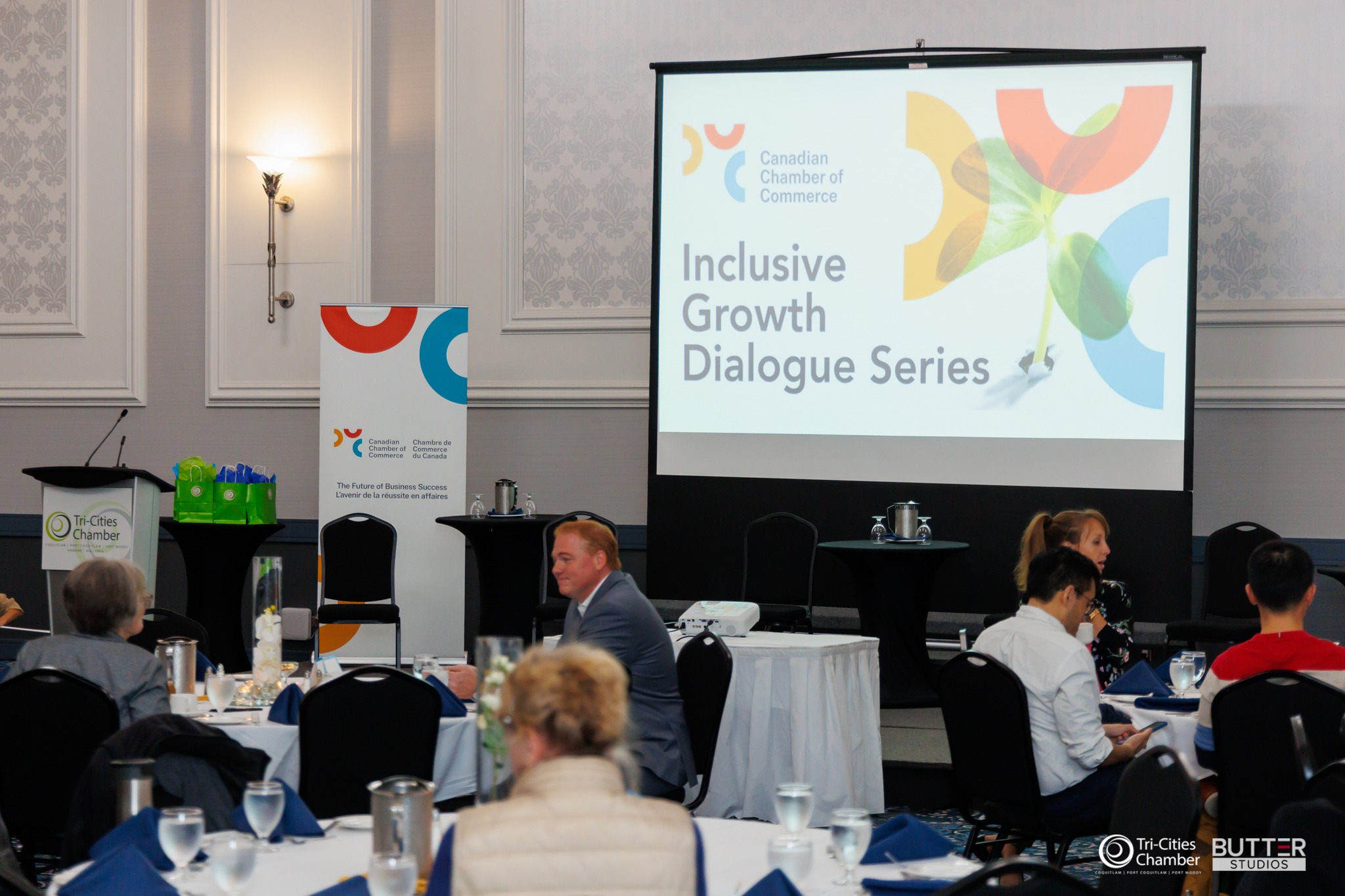
In October (Disability Employment Awareness Month), we hosted two Inclusive Growth Dialogues on the topic of “employment inclusion of people with visible and invisible disabilities”.
With diversity, equity and inclusion (DEI) efforts often focusing on race, gender, and ethnicity, it’s critical to expand these discussions to also include accessibility and people with visible and invisible disabilities, like neurodivergence.
The first dialogue was held on October 4, in Guelph, Ont., in partnership with the Guelph Chamber of Commerce, and the second on October 5, in Coquitlam, B.C., in partnership with the Tri-Cities Chamber of Commerce.
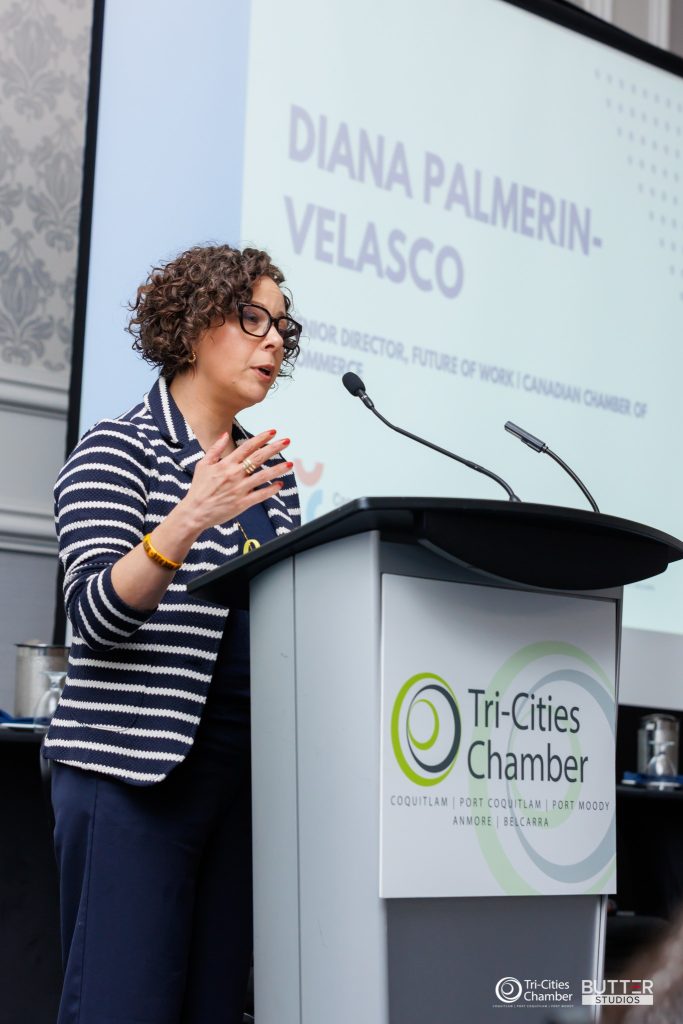

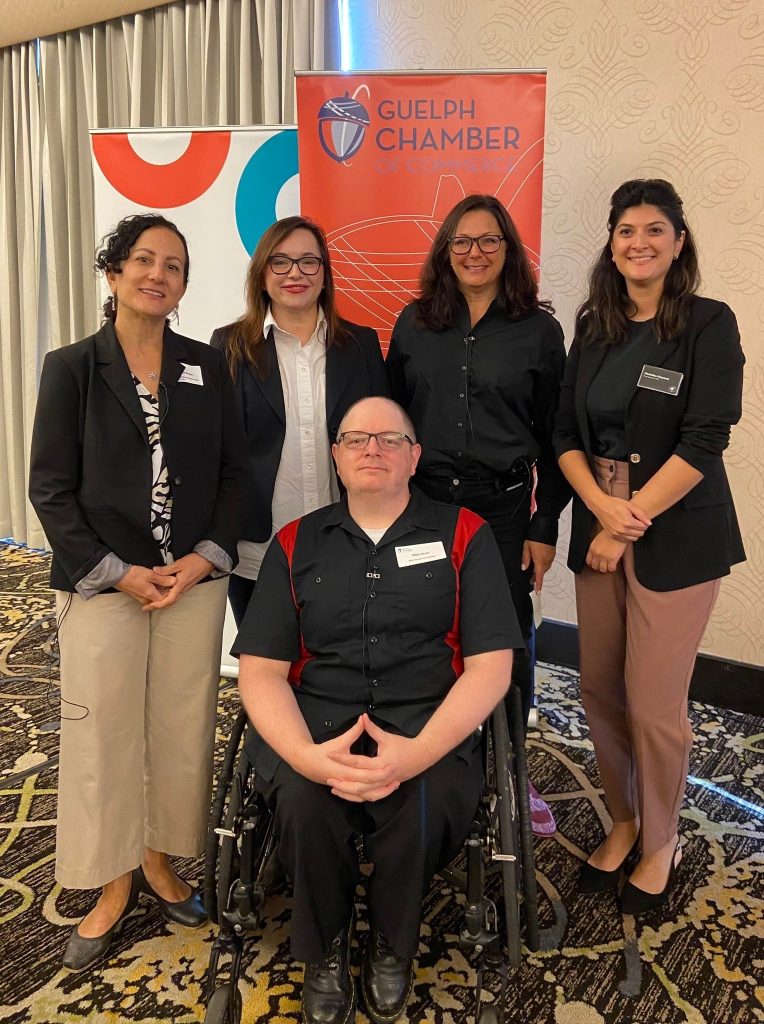
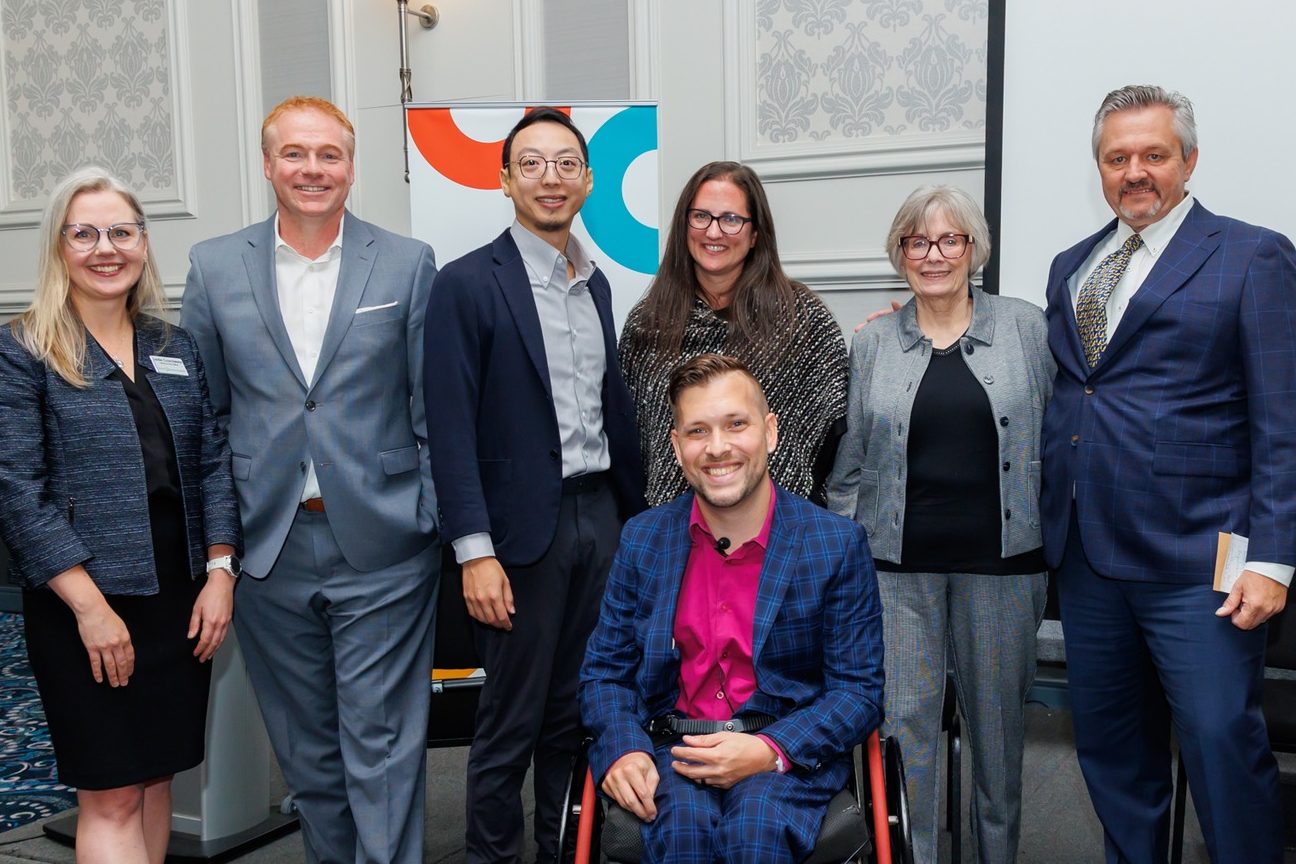
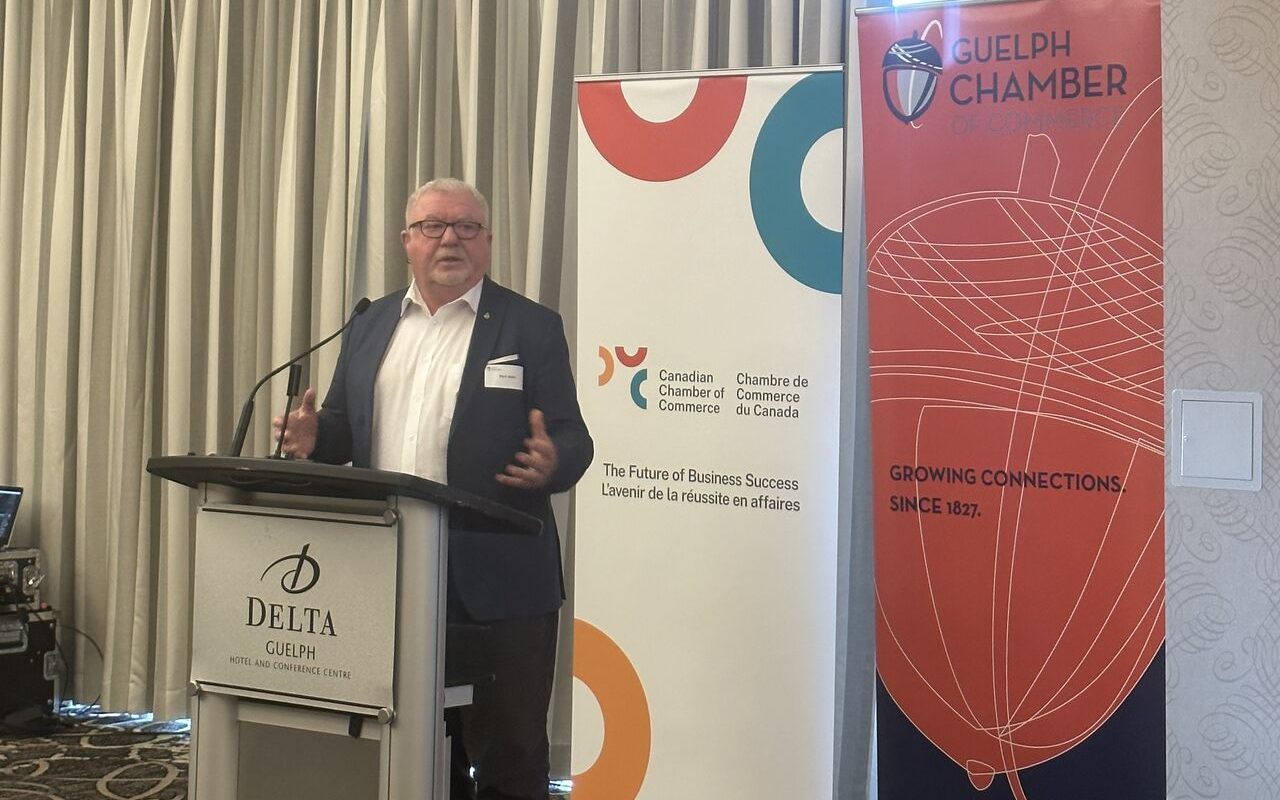
Guelph Inclusive Growth Dialogue:
Keynote speaker: Mark Wafer, former President and CEO of Abilities Canada and disability inclusion advocate
Panellists:
- Nikki Gore, Director, Marketing and Business Development at Auticon
- Mike Greer, Senior Specialist, Engagement and Accounts, Accessibility Certification at the Rick Hansen Foundation
- Cathy Katrib-Reyes, Senior Manager with the Equity and Inclusion Department at the Canadian Broadcasting Corporation (CBC)
Coquitlam Inclusive Growth Dialogue:
Opening remarks: Stephanie Cadieux, Chief Accessibility Officer, Government of Canada
Keynote speaker: Marco Pasqua, award-winning entrepreneur, and accessibility consultant
Panellists:
- Lisa Beecroft, Co-Owner of Gabi & Jules
- Yat Li, Senior Accessibility Consultant of the President’s Group
- Brad Liski, CEO and Co-Founder of Tru Earth
- Carol Simpson, President and CEO of Focus Professional Services
- Nate Toevs, Employer Outreach Developer at the Neil Squire Society
Here are some of the highlights from these important dialogues:
Building Trust
As trust significantly affects whether individuals disclose their disabilities in professional settings, it is critical that employers cultivate a workplace culture of understanding and mutual support. This can look like encouraging ongoing DEI and accessibility learning, complying with accessibility legislation and regulation, normalizing conversations around disabilities (including neurodivergence) and hiring dedicated staff who support the organization’s accessibility and inclusion initiatives.
Shifting the Workplace Mindset
Though a lot has been done to counter the false narrative that people with disabilities do not contribute to the economy, more is needed. Organizations must take a definitive stand on inclusion and accessibility — and they don’t need to develop a flawless plan before they begin. A mindset shift in the workplace starts from the top down, with executives following the guidance of the disabilities community and demonstrating a commitment to accessibility and DEI through conversation, education and accommodation.
Local chambers can encourage businesses to reframe their perspectives on individuals with disabilities by providing educational resources and training programs that address and correct misconceptions that form barriers to employment.
Recruitment and Hiring
Businesses should work towards normalizing the presence of people with visible and invisible disabilities in the workplace, which will likely involve updating hiring practices to prioritize equity and inclusion. For instance, being upfront about their willingness to provide accommodations rather than waiting for the applicant to disclose their need first. Organizations do not need to wait until their environment is accessible to hire people with disabilities but can recruit first and then provide accommodations based on the new hire’s needs. Local chambers of commerce can encourage inclusive hiring practices by applauding businesses that demonstrate effort and commitment to inclusion through awards and public recognition.
Accommodations in the Workplace
Accessible workplaces have a higher employee retention rate, yet many people wrongly assume that the cost of accommodations is too high. However, simple changes like desk heights or lighting can go a long way. Other examples of accommodations include:
- Using tools like transcription services during meetings to ensure that everyone has equal access to information.
- Reevaluating workplace documents and forms to ensure they are straightforward.
- Adopting flexible workplace policies around work hours, work environment and job duties to accommodate different needs.
- Encouraging clear and inclusive communication by considering the pace of speech and avoiding idioms that might be confusing.
Understanding that everyone can be held to the same expectations, but may need different accommodations to meet those expectations, is fundamental to the development of more accessible and neuroinclusive workplaces that see accommodations as the norm rather than an exception.
The Role of Chambers of Commerce
The role of chambers of commerce as connectors and in promoting the inclusion of people with disabilities in the economy is pivotal. Chambers can facilitate conversations, implement training programs for employees and employers on working with individuals with disabilities, encourage big businesses to reflect on current practices and engage in education, initiate regular networking events and spaces that create opportunities for diverse voices to be part of key decision-making processes, and amplify the services available to both individuals with disabilities and organizations seeking to hire them. Chambers can also set tangible accessibility and inclusion goals and hold entities accountable for meeting them. But most importantly, chambers themselves must embody the same practices they encourage businesses to adopt.
About the Inclusive Growth Dialogues
At the Canadian Chamber of Commerce, we believe that diversity, equity and inclusion (DEI) are essential to fairness of opportunity, competitiveness of business, and our nation’s economic growth and prosperity. Our Inclusive Growth initiative advocates for a business environment that works for everyone, paying particular attention to groups of the population that historically and presently face barriers, preventing them from fully participating and thriving in our economy.
Through our Inclusive Growth initiative, we aim to mobilize the knowledge and resources of the Canadian Chamber Network to be a strong agent for change. In collaboration with the Canadian Chamber Network, we co-hosted five Inclusive Growth Dialogues in 2023. These dialogues provide an opportunity to identify challenges and opportunities relating to the role chambers can play in advancing economic reconciliation and fostering a more inclusive business community.
A What We Heard blog will be produced for all five Inclusive Growth Dialogues, so be sure to come back for those insights. The Halifax Inclusive Growth Dialogue’s What We Heard blog is available now.
Other Blogs

Policy Matters: Revisiting the 3 Most Popular Topics of the Year

Vaccines: A Potential Key to Unlock Many of Canada’s Healthcare Challenges




